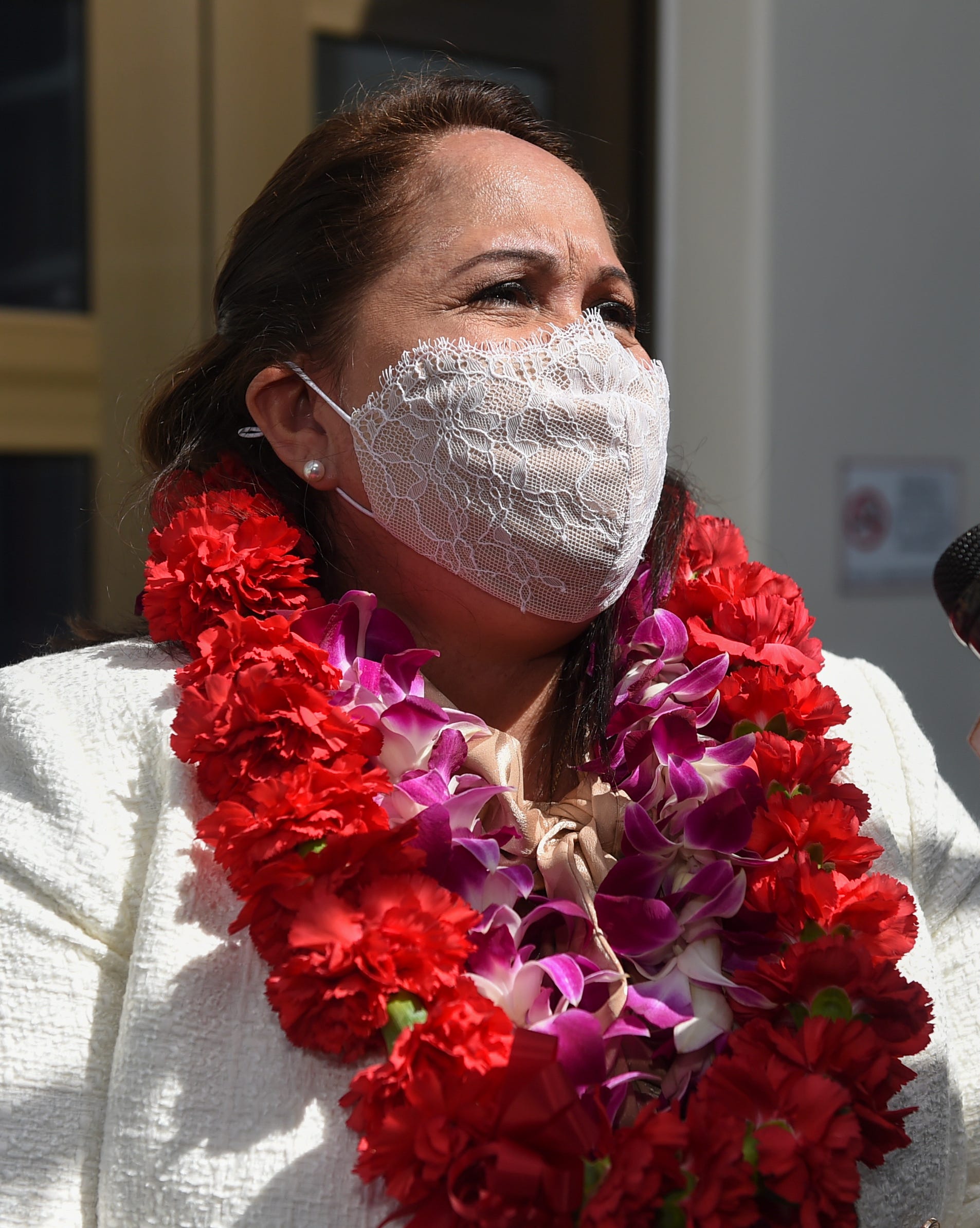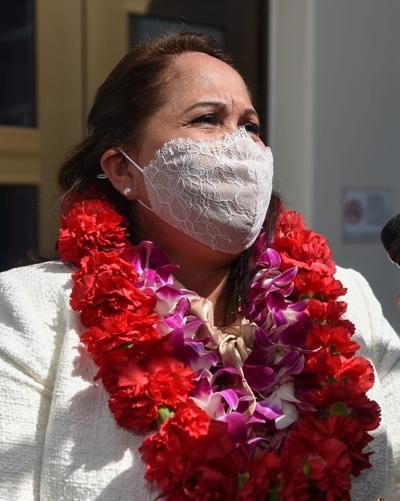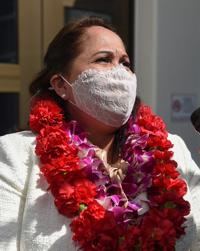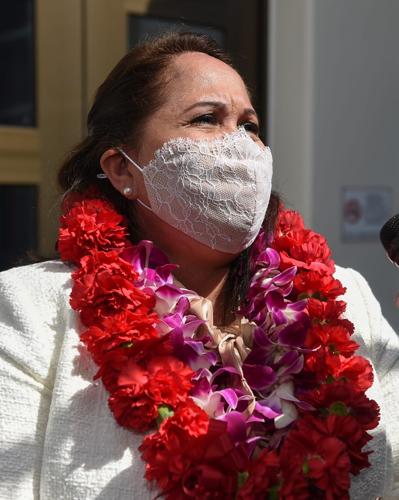With the backing of more than 400 medical professionals, Vice Speaker Tina Muña Barnes announced she was withdrawing support from a bill that would remove the mandatory arbitration requirement for people filing medical malpractice claims.
The measure was introduced by Speaker Therese Terlaje.
Ten of the 15 members of the 36th Guam Legislature are now signed on as co-sponsors of Bill 112, a bipartisan group made up of all except Sens. Jim Moylan, Frank Blas Jr., and Mary Camacho Torres.
Muña Barnes wrote to the speaker, saying she had supported the bill "because I was informed by you that you spoke to our island's medical community. However, I have received numerous calls from members of the medical community to the contrary."

According to Muña Barnes' letter, she had requested a list of supporters from Terlaje's office in order to hear their perspectives. To date, she has not received one, the letter stated.
The current law was the subject of a series of hearings in 2019, where local doctors opposed a repeal of the law, citing an increase in frivolous lawsuits and a deterring of doctors practicing on island as a possible consequence.
The potential cost of reducing the already low number of specialists on Guam was too high, Muña Barnes said. There were 447 doctors, nurses and medical staff who signed on to her withdrawal of co-sponsorship.
Speaker Terlaje spoke with Pacific Daily News about the bill before Muña Barnes announced her withdrawal. She said the measure was meant to ensure that patients of all income levels had their rights protected.
Current law requires a panel of three arbitrators to hear medical malpractice cases. According to Terlaje, the average cost of arbitration is between $40,000 and $60,000 dollars per party per claim, not including legal fees and the costs of expert witnesses who must also be brought in.
Patients who wish to file malpractice claims have argued that the cost is too high.
Bill 112 would still allow for pretrial screenings through arbitration if the parties involved agreed, but would replace the three-person panel with a magistrate judge.
"The bill is also meant to find a balance and still protect doctors and medical professionals from frivolous cases," Terlaje said.
Some, including the GMH President of Medical Staff Dustin Prins, have said that a magistrate judge would not be sufficient.
Nurse practitioner Carla Haddock has said that judges may apply a standard medical of care based on the states, while on Guam, the shortage of specialists leads some doctors to provide consultation outside of their immediate area of expertise.
According to Terlaje, magistrate judges are vetted by the legislature and held to the same ethical standards as other judges. They will also be informed in the same manner that members of current arbitration panels are, through expert witnesses.
"The entire U.S. system of law relies on officers of the court to administer justice in all other negligence cases. Parties who do not want to avail of magistrates can agree to use arbitration,” she said.
As for concerns over the standard of care, she said that the bill uses the same standards currently in place. "If the current standard of care allows doctors to operate outside of their specialties due to the shortage of providers, then Bill 112 allows for the same.”
"Threats to further limit access to specialist care on Guam are not a solution, and are not logical based on the continued special screening protections provided to doctors in the bill," she said.
The repeal could also increase the costs of malpractice insurance, some have said. Dr. Hoa Nguyen stated that his clinic, American Medical Center, already pays about $500,000 a year in premiums.
Terlaje maintains that there is no evidence for this claim, however the current law, enacted in 1991, was meant to replace a 1975 law that also called for mandatory arbitration. The 1975 statute read that "higher judgments, settlements and the filing of suits are increasing the costs of malpractice insurance and making it unavailable altogether."
Muña Barnes introduced a draft bill in the 35th Guam Legislature that would repeal the Mandatory Medical Malpractice Arbitration Act, but withdrew it after opposition from the medical community.
The vice speaker also introduced Bill 248-35, which would create a fund to help patients with the cost of arbitration through an initial $100,000 seed from GovGuam and a $150 contribution from local doctors each year, but again withdrew the measure in May 2020.
Some members of the medical community have expressed support for a solution similar to Bill 248-35, but according to Terlaje, estimates find that the proposal would only be able to fund an average of 1.5 malpractice claims after the first year.
"No other proposal or solution has been offered or put on the table by any senator during this term except for Bill 112," she said.
Reach reporter Joe Taitano II at jtaitano@guampdn.com.
This article originally appeared on Pacific Daily News: Vice speaker withdraws support for change in medical malpractice law






(0) comments
Welcome to the discussion.
Log In
Keep it Clean. Please avoid obscene, vulgar, lewd, racist or sexually-oriented language.
PLEASE TURN OFF YOUR CAPS LOCK.
Don't Threaten. Threats of harming another person will not be tolerated.
Be Truthful. Don't knowingly lie about anyone or anything.
Be Nice. No racism, sexism or any sort of -ism that is degrading to another person.
Be Proactive. Use the 'Report' link on each comment to let us know of abusive posts.
Share with Us. We'd love to hear eyewitness accounts, the history behind an article.